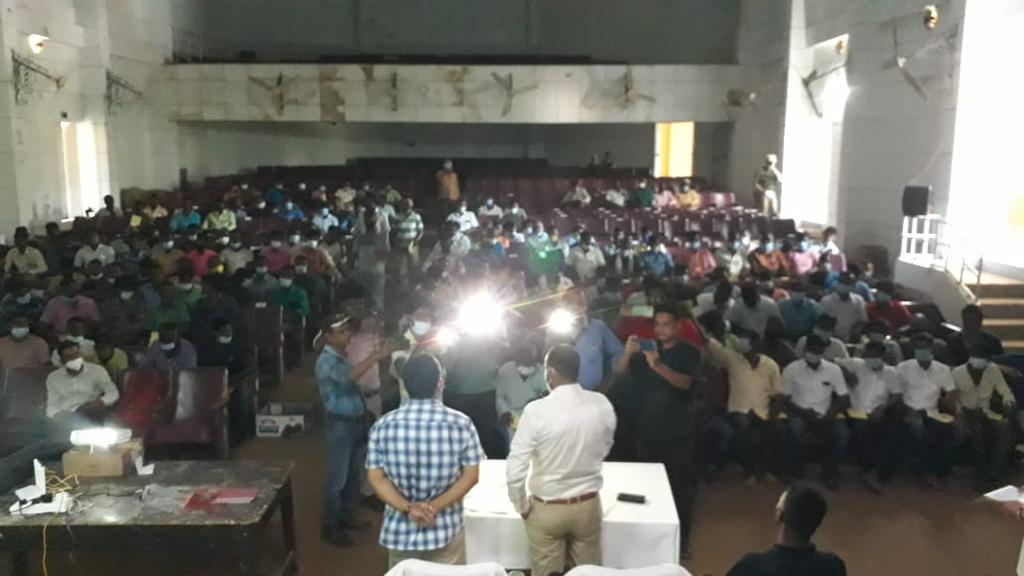Spread the love
A BNE Exclusive with Shri Adil Khan, IAS, SPD, Assam Inland Water Transport Development Society
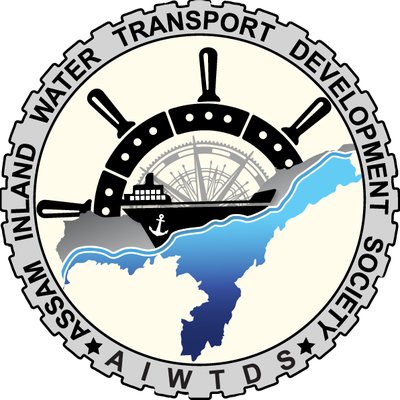
With 1983 kms of navigable waterways, Assam has on average, almost a crore of people travelling through the inland water transport, every year. The waterways of Assam are not just a mode of transport, but an important source of livelihood for the people of Assam. Predominantly a riverine state, Assam’s history, geography, economy, and cultural heritage are all resplendent with tales and folklore of her rivers, The mighty Brahmaputra, the sole male river in the country, along with its tributaries carries one-third of the entire surface water of the country. It is one of the most difficult and unpredictable rivers in the world.
After the tragic boat mishap at Neamatighat (Jorhat), the Assam Inland Water Transport system was much in the focus for the wrong reasons. However, many developments have taken place since then and the citizens of Assam and beyond ought to know about the advancements. And thus, to talk about the Assam Inland Waterway Transport (AIWT) Project, currently being implemented in our State, Business-Northeast yet again knocked on the doors of Mr. Adil Khan, IAS, Commissioner Transport, Assam, and the State Project Director of the AIWT Project.
To understand the emergence of this project, it is pertinent to delve into the background first. The Directorate of Inland water transport was formed in 1958, with the purpose of running the inland water transport services which are mainly passenger ferry services. As of now, there are more than 100 passenger ferries along with a few cargo vessels and 3 cruise vessels. In 2012, after a major ferry accident in Medartari (Dhubri), the Khosla Committee headed by Mr. Jitesh Khosla, IAS, Former Chief Secretary of Assam was appointed to conduct an enquiry into the ferry disaster and suggest ways and means make the passenger ferry transport in the state safer. The report submitted by the committee suggested the unbundling of the Directorate of IWT. The unbundling led to the formation of the Assam Inland Water Transport Regulatory Authority to regulate the plying of vessels, formulate rules, safety guidelines, etc., and of course, enforce them across the waterway sector. Along with these, the committee recommended that two companies be formed – Assam Port Company and Assam Shipping Company. The Port Company was meant to look after the development and operation of the terminal infrastructure with all required amenities and the Shipping Company was meant to look after the operation of ferry services with the involvement of the Directorate, as and when required. These two companies were entities to be incorporated under the Companies Act, 2013 while the Assam Inland Water Regulatory Authority Act was passed by the Assam Legislative Assembly in the year 2018.
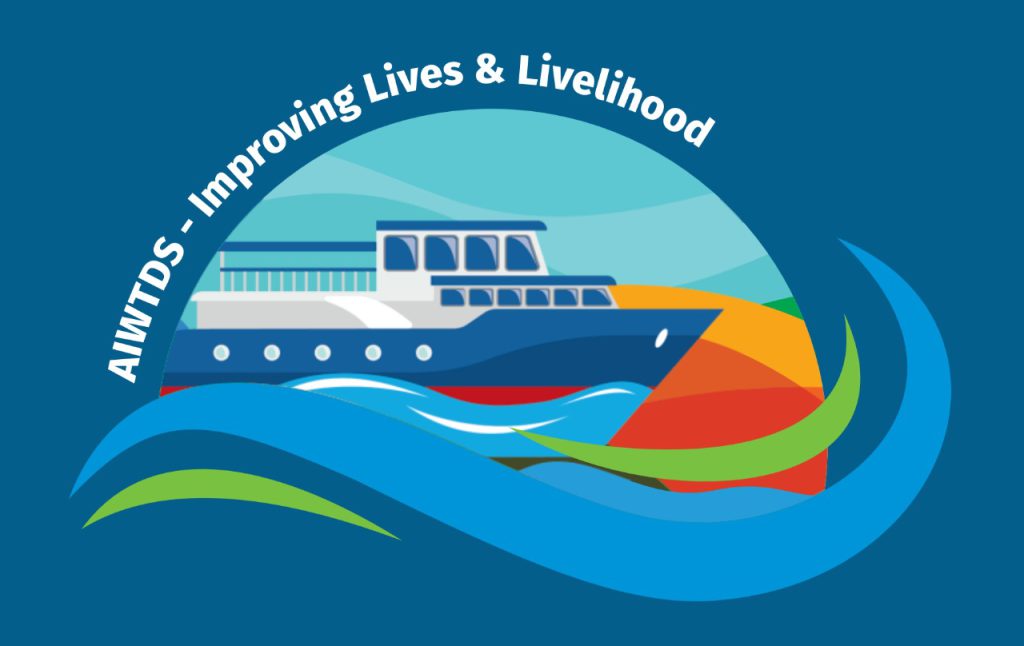
The AIWT Project was posed to the Department of Economic Affairs (DEA), Ministry of Finance, Government of India, in October 2015 for modernization and transformation of the Inland Water Transport sector in Assam. Thus the Assam Inland Water Transport Development Society was formed in 2016, registered under the Societies Act, through which the Govt of Assam approached the World Bank through the Ministry of Finance, Govt of India, for funding the concerned project. In January 2020, the loan agreement was signed between World Bank led by their Country Director and Govt. of Assam led by the State Project Director of AIWTS, in presence of seniors officers of the Department of Economic Affairs of the Ministry of Finance, for an amount of INR 770 CR (USD 110 million) of which 80 % will be a loan to be reimbursed by the MoF, Govt. of India, and 20% will be Govt. of Assam’s share. The tenure of the loan agreement is 5 years which is till December 2024.
Thus the AIWT Project started from the beginning of 2020 although theoretically it was being pursued from 2015. After the loan agreement, the project was initiated on the ground from March 2020. However, said Mr. Khan, that the Neamatighat accident, which shook the state to its core, validated the importance of this project. The need to expedite the work was unavoidable. Our Hon’ble Chief Minister Dr. Himanta Biswa Sarma, himself said that it was a very painful tragedy, but that in every adversity there is some opportunity that we must seize upon. That tragedy provided a lot of lessons for system improvements, which led to expediting the work at a very fast pace.
Further, Mr. Khan cleared the air by stating that in the Neamatighat accident, it was a private ferry that did not follow the safety norms and the “rules of the road of the ship” and also, the Master of the boat was not adequately trained, which led to the accident. After the accident, proper actions were taken against the company, that has been running private ferries on that route for decades now, – those responsible for the lapses, including personnel working for the authorities were arrested.
Mr. Khan further helped in drawing the larger picture by stating that, more than 100 ferry services are running under the Directorate of IWT. Apart from that, about 1000 private boats commonly known as Bhutbhuties are operating in the various rivers of Assam. These are all single-engine boats, which are not equipped with safety features. In fact, a large number of these boats are powered by agricultural pumps and not standard engines. Now under the AIWT Project, a major component is to retrofit these single engines with marine engines, along with reversible gearboxes, which will enable the driver to apply brakes in the middle of the river to slow down the vessel or even reverse it at times, which until now was not possible. The scheme under which this has been initiated has been named Jibondinga- Jibon means life and dinga means a small boat – pertaining to lives and livelihoods.
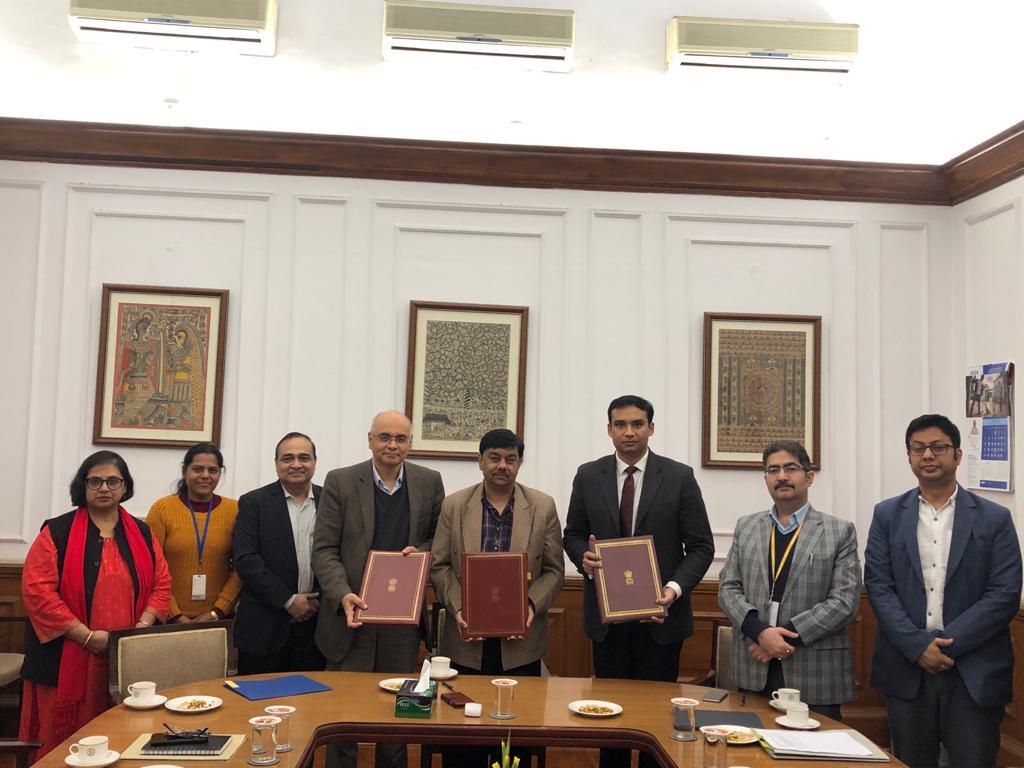
Jibondinga is an incentivization scheme for country boat owners/operators plying mechanized boats on the rivers of Assam, to be implemented by the Directorate of IWT Assam, in coordination with Assam Inland Water Transport Development Society, and funded by the World Bank. The scheme aims to provide safe, secure, and sustainable river transport in Assam, and encourage country boat owners to register their boats and avail the benefits. Initially, the Scheme offered a 70% subsidy to country boat operators against the cost of retrofitting/replacing previous engines with marine engines. The remaining 30% of the cost would be borne by the beneficiaries. But recently, Hon’ble Chief Minister of Assam made a benevolent announcement that 100% of the cost will be borne by the Govt. of Assam, thus making it completely free of cost for the boat owners, so that not a single boat remains uncared for in the process. In fact, now single-engine boats that have been banned from running in the rivers will not be allowed to run unless they are retrofitted with marine engines. The scheme also provides life buoys and life jackets, firefighting equipment, GPS instruments, and passenger insurance for 3 years free of cost to the beneficiaries. About 500 engines of different capacities have been ordered already, of which some have already been received and their installation has started in right earnest. It is estimated that in the next 6 months, all the registered country boats across Assam will be retrofitted, Mr. Khan stated.
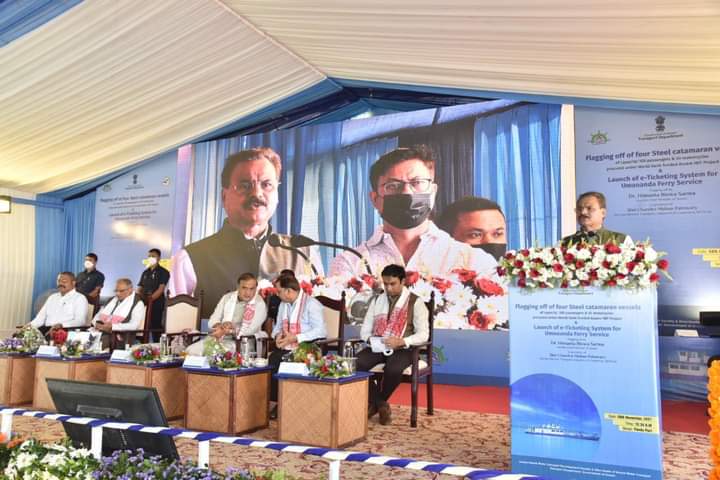
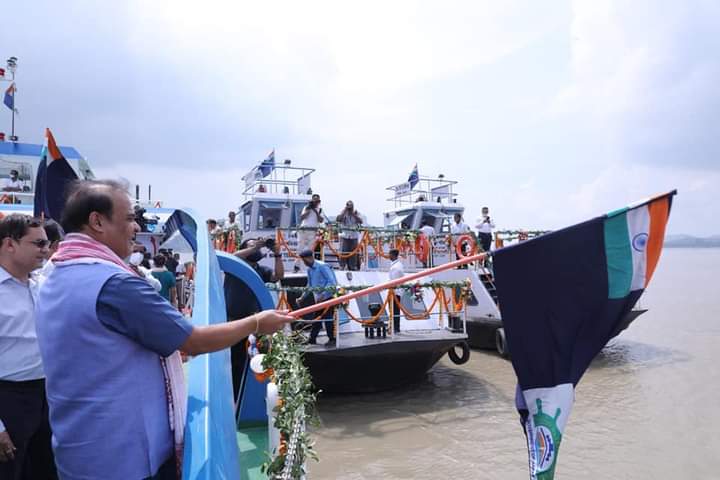
Further, Mr. Khan also mentioned regarding the daily ferry services of Brahmaputra: that the Regulatory Authority has started conducting strict and regular inspections, and wherever any violation is found – like overloading a boat and passengers not given or not wearing life jackets – the license of the particular ferry will be cancelled. “Playing with the safety of our passengers will not be allowed at any cost,” stated Mr. Khan.
Under this project, a few Search and Rescue vessels are also being procured along with a few Tug boats. A few Man Overboard Boats have already been procured and pressed into service. More importantly, capacity-building training will be provided to the Masters and other members of the crew who operate the vessels, for which assistance is being taken from the World Bank.
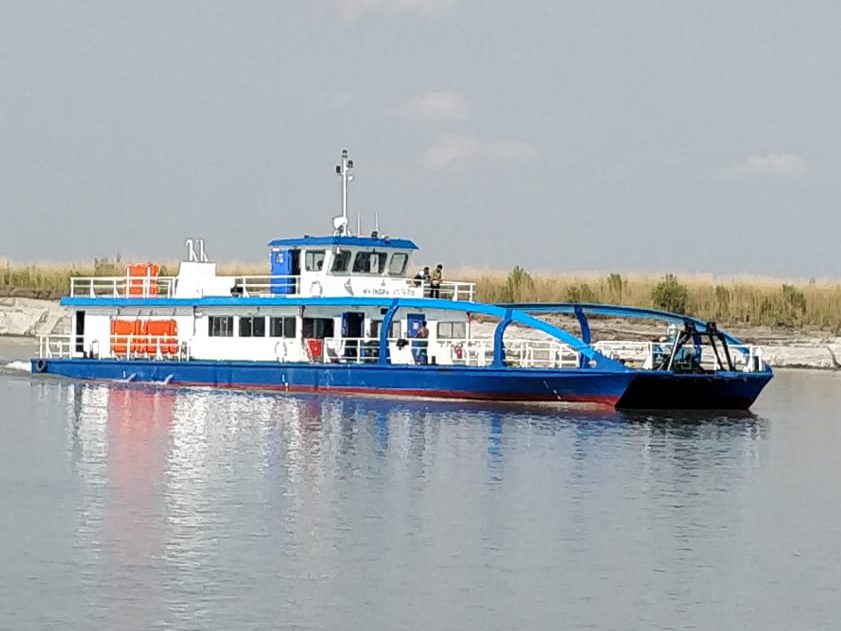
Moreover, Mr. Khan informed us that 20 new state –of –the art vessels are being procured by the Govt of Assam under this project from a shipyard in Bharuch, Gujarat through a global tender, of which 10 vessels are 100 passengers and 50 two-wheeler capacity and 10 with 50 passengers and 25 two-wheeler capacity. The entire cost of this fleet is about INR 60 CR. 7 of the 100 pax vessels have already arrived and these have been launched by the Hon’ble Chief Minister on the Brahmaputra, to ease the constraints on traffic caused due to the banning of private boats. The remaining vessels will be launched soon. These vessels are called catamarans – double-hulled, safe vessels, with modern safety and propulsion features with speeds of up to 10 knots. The most unique part of these boats is that they can run on a very low draft of water of 0.75 m, thus enabling them to run unhindered even when the water level recedes during the dry seasons.
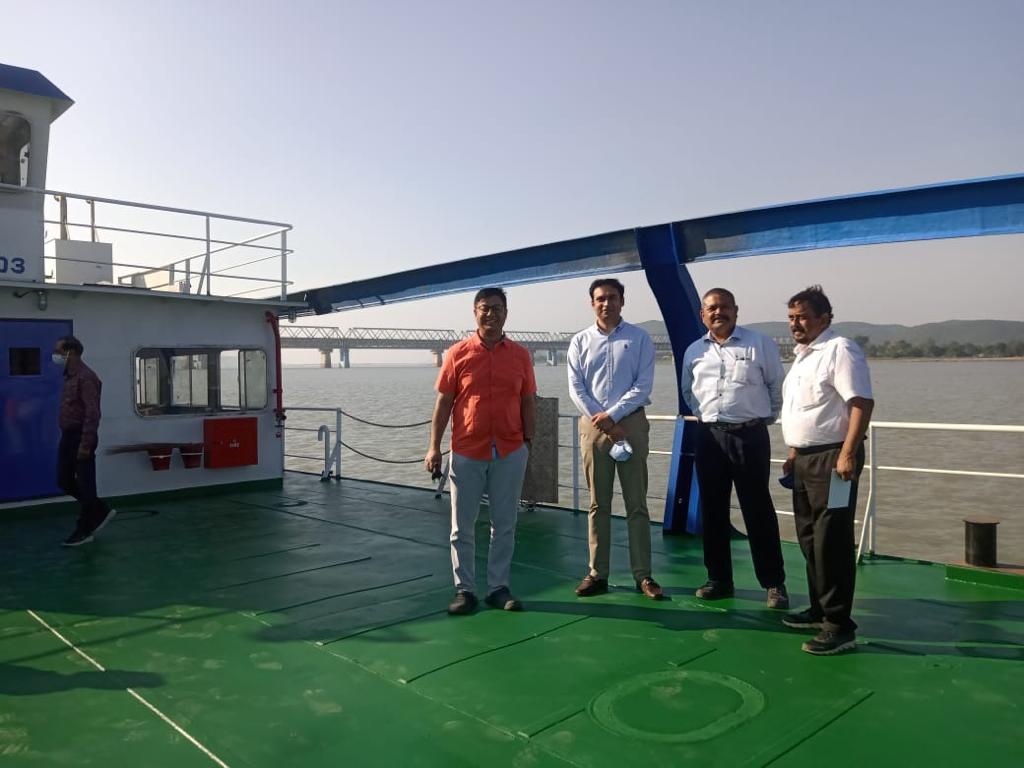
Another feature to be introduced soon, said Mr. Khan, is Night Navigation, which till now was not permitted on the rivers in the state as it is highly unsafe for vessels to ply at night. Assam IWT has tied up with IIT Madras, which has a special wing known as the National Technology Centre for Ports, Waterways, and Coasts (NTCPWC), under the Ministry of Shipping, Govt. of India for this assignment. All-weather research and studies are going on for the past few months, based on which all the data is mapped into an application that is on the verge of completion and is to be launched soon. Through the App, these new vessels will be also able to navigate on the Brahmaputra at night.
With this, an important concept called the River Information System will also be introduced, wherein all the vessels would be fitted with proper GPS devices with a centralized Command and Control Centre, which will monitor their movements. There will also be a helpline system set up, for any sort of support sought by passengers.
Apart from procuring new vessels and retrofitting the existing ferries, work has also been initiated to improve the terminal infrastructure. An amount of about INR 116 Cr has been sanctioned for a major terminal that is coming up near Sukreswar Temple, Panbazar, in South Guwahati, known as the Guwahati Gateway Ghat. A global tender for this project is currently open for which the last date for submission of bids is 30th November. Apart from this mega terminal, many smaller terminals are also being envisaged in other places viz: Aphalamukh, Uzan Bazar, Umananda, North Guwahati, Kuruwa, Neamati, Dhubri, Goalpara, Bahari, Ghagor, Guijan, Disangmukh, and Matmora at a comparatively smaller cost of INR 10 Cr each. While preparatory studies have already been initiated, the physical work on these terminals will begin in another 6 months. The specialty of these terminals will be floating jetties which will move vertically in consonance with the water level of the river but will be fixed in one place so that the flow of the river does not keep relocating their positions as it has been happening so far.
Further Mr. Khan gave an insight by saying that although this project is currently focusing on improving the passenger transport system, interestingly, there is the scope for embarking upon cargo transport as well. Assam has an untapped potential of providing cargo transport. Historically, the Brahmaputra and the Barak Rivers, being two of the biggest navigable waterways, were used by the British to ship their construction materials to lay railway lines in upper Assam, thus emphasizing the potential that can be harnessed from this mode. River transport is not just cheaper, it is environment friendly, safer in many ways, it can decongest the roads and therefore reduce road accidents. Thus, there is a huge opportunity in the future for IWT to develop its cargo business. As of now, the cargo traffic is not much but it is expected to increase manifold after the opening of the Assam-Bangladesh River protocol, which will connect the currently landlocked Assam to the seaports through the river, thus opening up more opportunities for expansion. This will undeniably be a big boost to the economy of Assam.
Till now, the Government of Assam has been focusing primarily on improving the waterways system and developing it to a higher standard, hence the focus is not on revenue generation. Incidentally, earlier this mode of transport was prone to quite a lot of revenue leakage due to the manual ticketing system. Hence, now IWT, Assam has come up with online ticketing services to ensure that such leakages do not take place any more. An e-ticketing system was launched by Hon’ble Chief Minister, at first in Neamatighat- Majuli routes right after the incident in September this year, and subsequently in Guwahati as well. This will be formalized everywhere in Assam in a short span of time. But the bottom line of IWT Assam is to provide safe, state-of-the-art, comfortable passenger service for the people, with all modern amenities, and most importantly, ensure their safety.
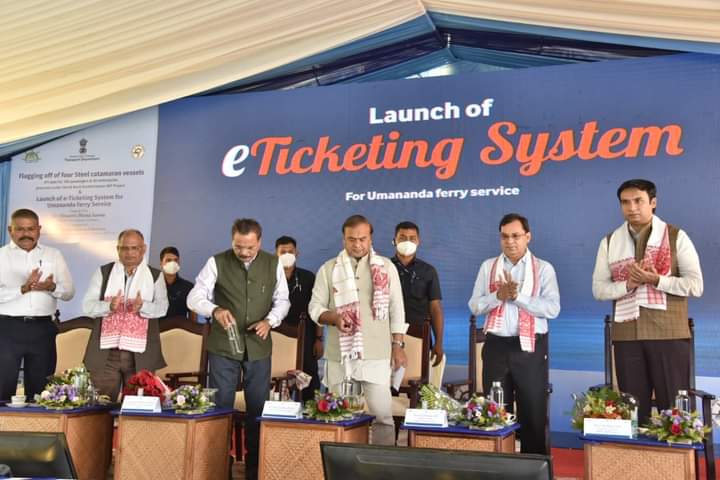
To achieve these objectives and features, such a high-value project is being implemented in Assam. This is also the first and one of its kind project which has not been done in any other state of the country yet. Mr. Khan further said that he was sure that other states will definitely take interest in this project, learn from its experiences and try to implement the same in their own respective states subsequently.
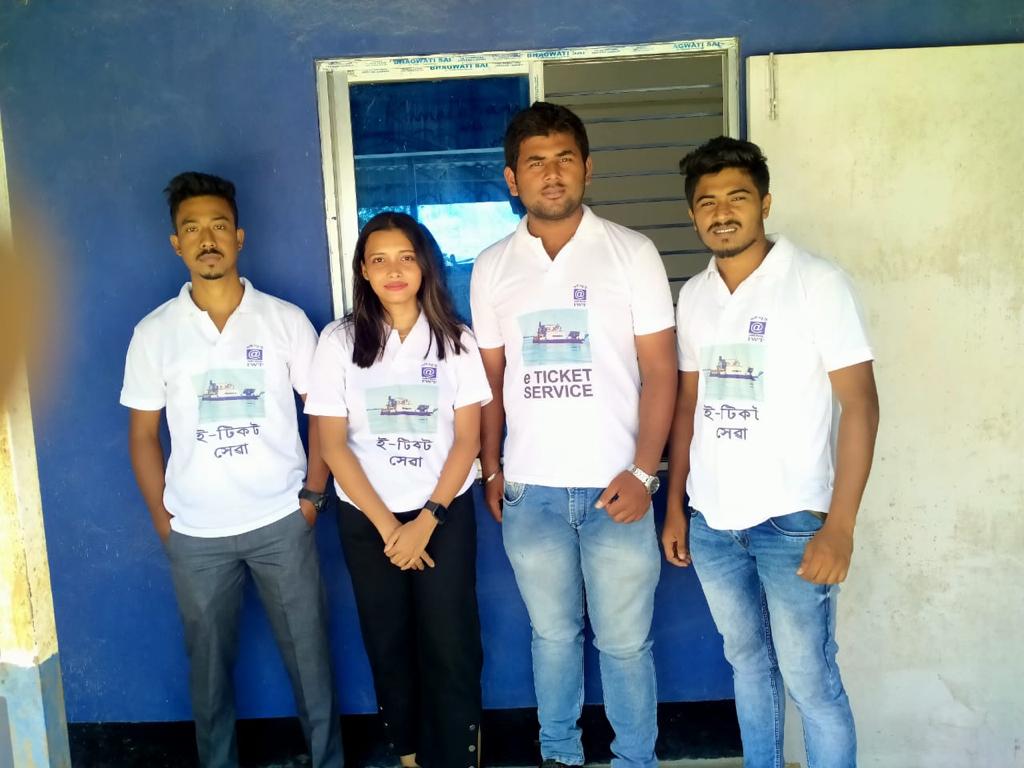
With this, he urged the citizens of Assam to be more vigilant about safety measures from their end by adhering to the rules and raising objections if any rule-breaking in the ferry services is noticed. Life jackets are to be worn at any cost while travelling on the waterways. If the citizens do their part in maintaining safety protocols, it will be a big help for the DIWT, Assam to do even better in the already advancing system of waterways. Mr. Khan expressed his sincere hope and conviction that Assam will witness the glory of a high-performance-oriented, invincible Inland Water Transport System and emerge as a strong competitor to other modes of transport in the state.
